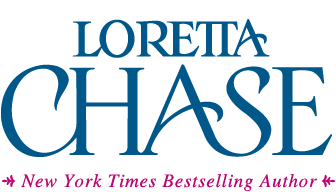I know Byron was clueless about punctuation. He admitted it. I know a dash tended to be his universal punctuation tool--but he did dash very dashingly, we must admit. I can understand his failing to master the art of commas, semi-colons, and colons. An apostrophe, however, is sort of a spelling tool, isn’t it? It marks contractions. And he seemed to understand this aspect of punctuation..sort of...or was that his editor? He uses tons of contractions. They appear in practically every piece of his poetry I quoted in Your Scandalous Ways. Here’s a sample from Beppo.
Didst ever see a Gondola? For fear
You should not, I’ll describe it to you exactly:
‘Tis a long cover’d boat that’s common here,
Carved at the prow, built lightly, but compactly;
Row’d by two rowers, each call’d ‘Gondolier,’
It glides along the water looking blackly,
Just like a coffin clapt in a canoe,
Where none can make out what you say or do.








